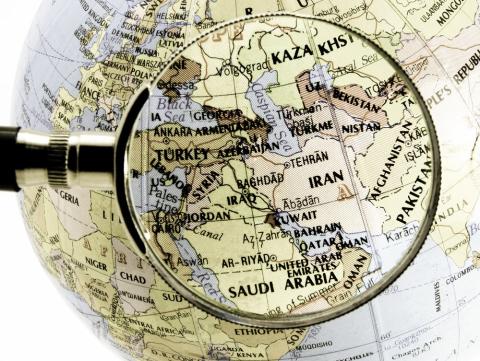https://www.youtube.com/watch?v=kILVVS_mD9U
News broke over the weekend that four countries -- Bahrain, Egypt, Saudi Arabia, and the United Arab Emirates -- severed diplomatic ties with Qatar over allegations that the country is funding terrorism in an effort to keep the region destabilized. Qatar denies these allegations. However, according to WikiLeaks, US officials have known about Qatar's ties to groups like ISIS for years.
https://twitter.com/wikileaks/status/871591038191894528
The email was sent from former Secretary of State Hillary Clinton to John Podesta. She knew Qatar and Saudi Arabia had been providing financial and logistic support to extremist groups like ISIS, and said the U.S. needed to use "diplomatic and more traditional intelligence assets" to put pressure on both countries to cease terrorist-related activities.
WikiLeaks also posted this about Saudi Arabia from 2008:
https://twitter.com/wikileaks/status/871481423584272384
Nothing in this story should surprise anyone. However, it further highlights how messed up the situation is in the Middle East, and how the US continues to stay the course on its approach to the region -- regardless of administration or party.
The pressure coming from Qatar's neighbors follows close behind a $110 billion arms deal signed by the United States and Saudi Arabia on May 20. The deal drew ire from an odd couple of US lawmakers trying to change the US's involvement in the Middle East.
https://twitter.com/RandPaul/status/867395263664730112
US Rep. Tulsi Gabbard (D-Hawaii) and US Senator Rand Paul (R-Ky.) are leading the effort to stop sending American tax dollars and resources that will likely end up in the hands of those trying to keep the Middle East destabilized. The Saudi deal, the lawmakers argue, only serves to benefit the worst offenders.
https://twitter.com/TulsiGabbard/status/866103942366859264
ALSO READ: Rep. Gabbard: Saudi Deal Signals More Hypocrisy in Fight Against Terrorism
Gabbard is the chief sponsor of a bill called the Stop Arming Terrorists Act, which is currently stuck in committee.
What do you think of this story? Is it another example of how the US needs to pause, reflect, and even change its foreign policy approach to the Middle East? Do we need a different approach?
Photo Credit: Charles Taylor / shutterstock.com
